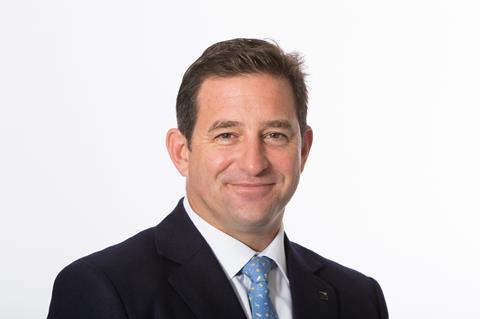Cobalt mining in the Democratic Republic of Congo could be politically risky in 2018

Upcoming elections could spark political risk in 2018 amid social pressures and unpredictability. Insurer XL Catlin’s head of emerging markets, Brendan Plessis (pictured), pointed to The Democratic Republic of Congo (DRC) and the cobalt extraction industry as potential tinder for such a spark.
“People should be preparing for diverse sparks of political instability, and looking to build resiliency for their operations that rely on politically fragile countries like the DRC,” Plessis told StrategicRISK. “The keys to that are about conducting thorough due diligence, planning ahead for potential risk scenarios, and transferring risks, through insurance, where appropriate.”
The DRC faces an election in 2018, Plessis noted. Why is that important? Because the politically unstable African country produces most of the world’s cobalt, a by-product of nickel and copper mining; and because the metal is a core ingredient used within batteries, used in millions of cell phones and, increasingly, to power millions of electric vehicles. “Cobalt is a critical ingredient of tech-driven lifestyles. Demand for it is only going to rise,” summarised Plessis.
First Cobalt, a Toronto-based mining company, said in mid-September that it would be pulling out of the DRC, citing a “deteriorating investment climate”. The town of Cobalt in Ontario, named after the element, is seeing a return of prospectors seeking stability. Decades of corruption have hollowed out Gécamines, the DRC’s state-owned mining firm, which keeps a stake in foreign firm’s ventures in the country.
Volkswagen, the world’s largest car manufacturer, has reportedly produced a tender asking producers to submit proposals on supplying it cobalt for use in electric vehicles for the decade from 2019. The German company aims to make up to three million electric cars per year by 2025.
Pressures on the political system, leading to risks such as seizure of assets, political violence, or currency inconvertibility, are not restricted to the DRC. Plessis noted that Mexico also faces social pressures despite booming growth in its manufacturing and electronics sectors in recent years. In Europe, Spain faces crisis in Catalonia.
“There are political hotspots of instability,” said Plessis. “Many citizens have been benefitting from globalisation and advances in technology, but fault lines that have opened up recently have exposed the weaknesses within governments.”
Plessis suggested a checklist for firms with operations in political risk hotspots: due diligence to understand the socio-political context; developing personal relationships with local citizens and decisionmakers; proactively monitoring developments; having practical and affordable contingency plans; diversification efforts; and risk transfer, “where insurance plays a fundamental role”.
He noted that investor attitudes to ‘emerging markets’ have fluctuated since the phrase was first coined in 1981 by Antoine van Agtmael when he was working for the International Finance Corporation, part of the World Bank. What has changed since 1981 is how connected countries and their risks have become through globalisation.
“One risk in a certain place can quickly ripple around the world. Companies need to build resilience against political instability in their philosophies for establishing bases, manufacturing and distribution,” said Plessis.
He suggested China’s One Belt One Road overseas investment strategy is a source of political and supply chain risks for those countries along the new silk routes, which spread all the way from Beijing to Brussels.
Crisis management products are coming into their own in this context, Plessis suggested. “The global supply chain is more interconnected than ever. A small change can have major consequences. There will be more evidence of that as OBOR comes into place. It has the potential to impact 65% of the world’s population,” said Plessis.




















No comments yet